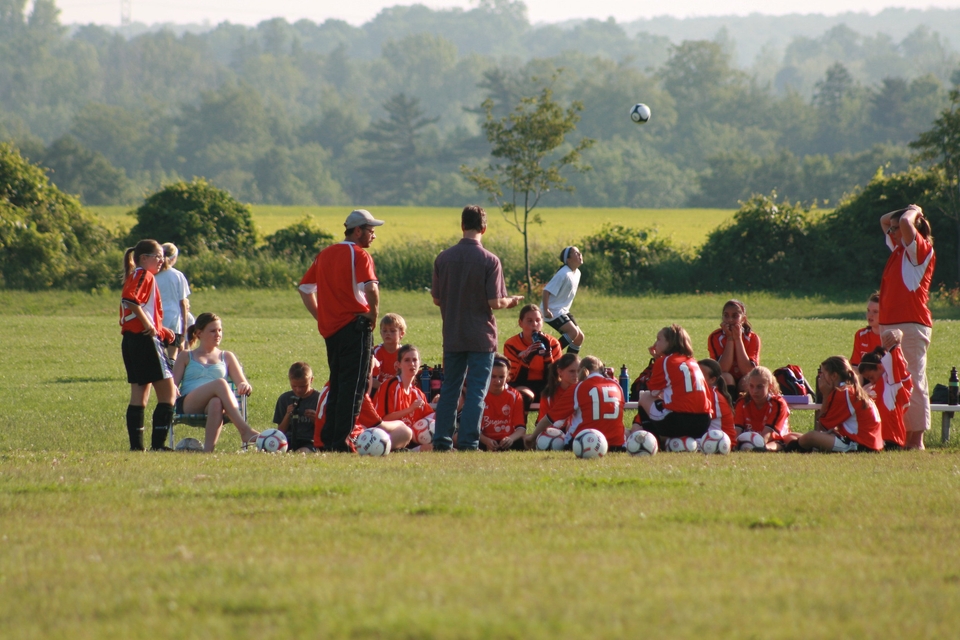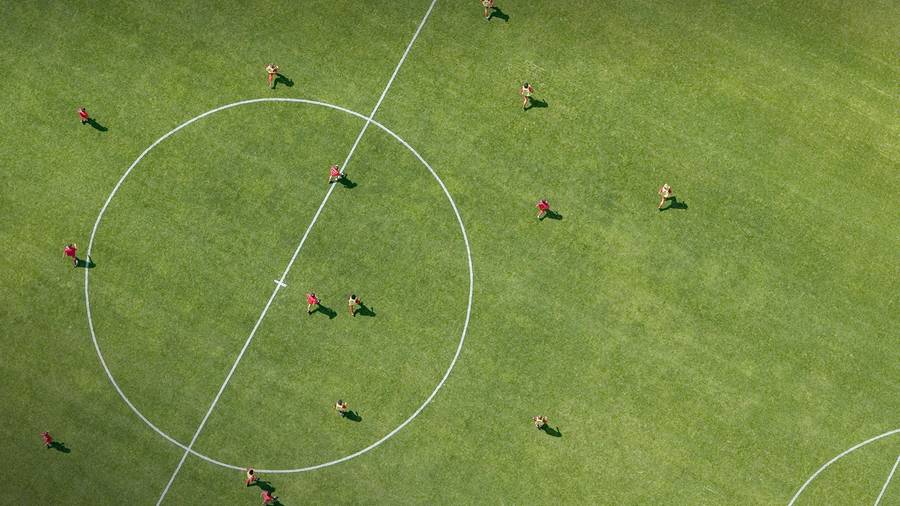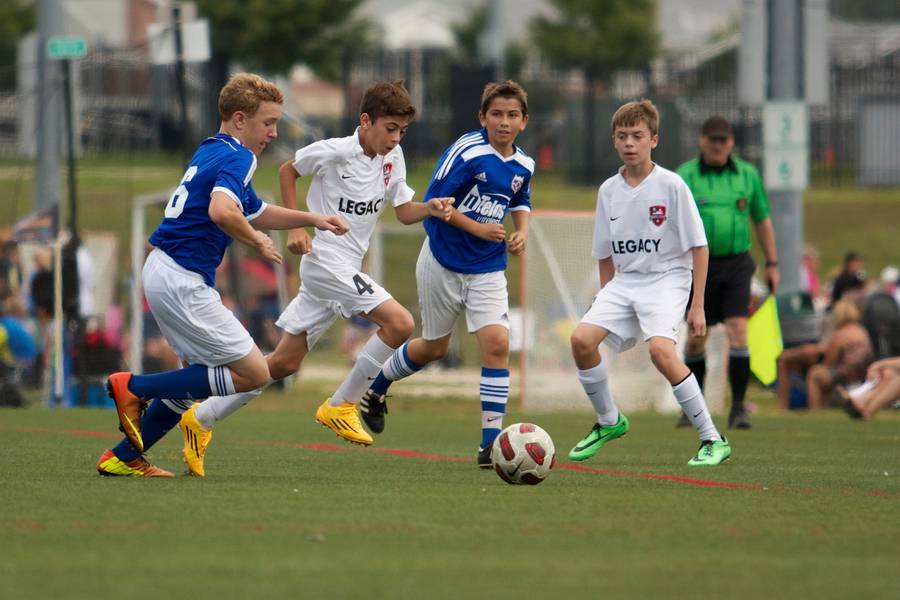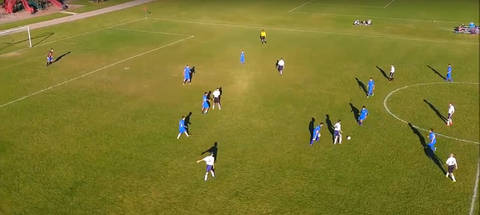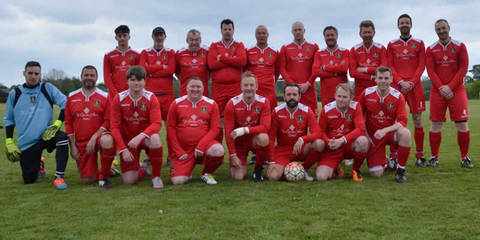
From the first time a child kicks a ball in the park to their weekly matches with their local team, they will encounter many people from all walks of life who will shape their relationship with the game.
Those of us who are involved with Grassroots football know that it is so much more than weekly training and matches but an environment where values are passed on, behaviours are absorbed and attitudes are formed.
At the centre of this ecosystem, whether consciously or not, are role models. They take many forms such as the coaches who stay behind after training to have a healing chat with a struggling player, more senior players who offer encouragement and parents who cheer without criticising. Their influence on our young, developing players is vast, yet often understated, shaping not just how they perform, but who they become as people.
At every grassroots club, there are children for whom the weekend match is the highlight of their week. We know football is a source of joy, belonging and identity. The environment in which they play, and the people they encounter within it can either build confidence or knock it down. While technical development matters, the culture surrounding youth football plays an even more lasting role. That culture is heavily influenced by the behaviour of those in leadership positions. The coach that leads with integrity, patience and kindness teaches far more than formations or skills. They model composure under pressure, show how to win and lose with grace and set expectations for how teammates should treat one another.
It is not just coaches who hold sway. Older teammates, particularly those in senior grassroots squads or adult teams within the same club, carry enormous influence. Younger players naturally look up to those ahead of them in age and ability. When those older players show respect, work hard and support others the positive influence trickles down. It shows the younger ones what is possible and how to get there. On the other hand, when senior players demonstrate poor behaviour or dismiss the importance of commitment, the ripple effect can be damaging. Grassroots clubs that understand this dynamic are often those that build better connections between age groups and become stronger clubs as a result.
Role models in grassroots football come in many forms, each contributing unique elements to a young player's development. The volunteer coach who arrives early and stays late is an obvious example but there’s also the club secretary who remembers every player's name, the teammate who offers encouragement after a mistake. Their influence operates through observation, interaction, and the gradual absorption of values that young minds naturally adopt from those they admire and respect.
What makes grassroots football particularly powerful as a development environment is its authenticity. Unlike formal educational settings where lessons are structured and outcomes measured, football provides organic learning opportunities where values are demonstrated rather than taught. When a coach maintains composure during a controversial refereeing decision, young players observe how adults handle conflict. When a teammate helps an opponent to their feet after a challenge, the lesson about sportsmanship is far more powerful than any lecture on its merits could possibly be.
The psychological impact of positive role models in youth sport has been extensively documented by researchers. Studies consistently show that children who experience a supportive, values driven coaching environment demonstrate improved self esteem, better social skills, and enhanced emotional regulation. These benefits extend way beyond the football pitch and influence their academic performance, family relationships and peer interactions. Positive coaching messages such as emphasising effort over outcome and celebrating improvement alongside achievement helps to create a framework for healthy competition and personal growth that serves young people throughout their lives.
As mentioned perhaps no role model carries greater responsibility or influence than the grassroots coach. Virtually always operating on a voluntary basis and juggling coaching with full time careers and family commitments, coaches shape how entire generations view football and, by extension, competition, teamwork and personal responsibility. The most effective coaches understand that their role extends far beyond tactical instruction, they are educators and mentors at the same time.
Effective coaching role models demonstrate several key characteristics that maximise their positive influence. Consistency ranks among the most important with young players thriving when they can predict how their coach will respond to different situations. A coach who reacts calmly to setbacks, celebrates fairly and treats all players with respect provides a stable foundation upon which young people can build confidence and take risks necessary for growth.
The language coaches use carries particular weight in shaping young minds. Research in sports psychology suggests that coaching communication significantly impacts player motivation and long term engagement with sport. Coaches who focus on process rather than outcome, who highlight improvement alongside achievement and who address mistakes as learning opportunities rather than failures create environments where young players feel safe to experiment and grow.
Modern coaching education increasingly emphasises the psychological and social aspects of youth development, recognising that technical knowledge alone insufficient for effective grassroots coaching. Programmes now include modules on child development, communication skills and creating inclusive environments.
While coaches provide adult guidance and structure, peer relationships within teams offer different but equally important role model opportunities. Senior players naturally serve as aspirational figures for younger teammates, demonstrating what dedication, skill development and maturity look like in practice.
Team dynamics create unique learning environments where social skills develop through real world application. Young players learn to navigate different personalities, resolve conflicts, support struggling teammates and celebrate collective success. The peer pressure that can be destructive in other contexts often becomes positive in well managed football teams, where group norms emphasise effort, improvement and mutual support.
The concept of collective responsibility within teams teaches valuable lessons about interdependence and shared purpose. When teams develop cultures where every member feels responsible for the group's success and wellbeing, individual players learn to consider how their actions affect others. This understanding of interconnectedness proves invaluable in preparing young people for adult relationships and future workplace collaboration.
Professional footballers occupy a unique position in the role model hierarchy, with sometimes good, sometimes bad effects. When professional players speak about perseverance, mental health, social justice or community responsibility, their words resonate in grassroots clubs across the country. The most effective professional role models understand their platform's power and use it responsibly.
Players who openly discuss their journeys from grassroots football to professional success provide inspiration and roadmaps for young players with similar dreams. When they emphasise the importance of education, family support and personal development alongside football achievement, they provide balanced perspectives on success and fulfilment.
Social media has transformed how professional players influence young fans, creating unprecedented intimacy between stars and supporters. Young players can follow their heroes' training routines, dietary choices and world outlooks in real time. This access obviously creates both opportunities and challenges.
Parents represent the most consistent and influential role models in young players' lives, their attitudes and behaviours significantly shaping their children's football experiences. Parents who demonstrate respect for opponents, officials, and coaches model appropriate sporting behaviour that children naturally adopt. Conversely, parents who openly criticise referees, pressure their children excessively, or prioritise winning over development can undermine the positive messages coaches and clubs work to promote.
The most effective parental role models understand their supportive rather than directive role in their children's football journey. They celebrate effort alongside achievement, provide emotional support during setbacks and maintain perspective about football's place in their child's overall development.
Community volunteers who contribute to grassroots clubs also often become powerful role models through their dedication and service. The committee member who organises events with enthusiasm and the fundraiser who works tirelessly to improve facilities demonstrates a commitment to a cause that can inspire young people. These people show that meaningful contribution doesn't require special talents or recognition, it simply requires caring about something bigger than themselves.
Role models play crucial roles in creating inclusive environments where all young people feel welcome and valued. Diverse leadership within grassroots clubs helps to shape a young player’s understanding of who belongs in football i.e. everyone! When children see people who look like them, speak like them, or share similar experiences in leadership positions, they develop stronger senses of belonging and possibility.
When a young player grows up remembering not just how to curl in a free kick but how their coach believed in them, or how an older player stuck up for them, or how their favourite professional inspired them to keep going when it got tough then something really important has been achieved.
In a world that often moves too fast for our young people, that kind of influence is not only valuable but essential.

